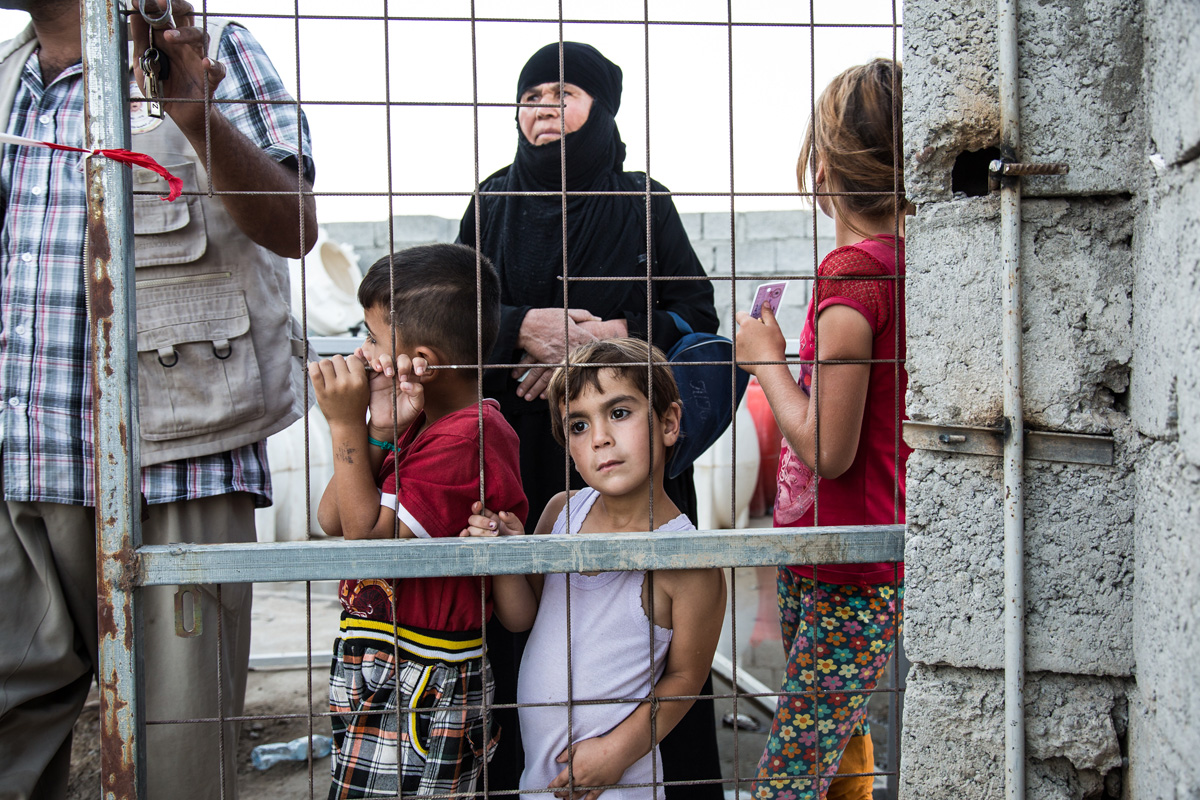Blog Home > early warning
-
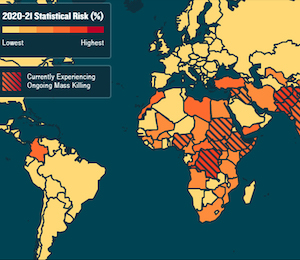
Launching New Early Warning Risk List
March 12, 2021
In late February, the Early Warning Project launched its latest early warning risk list, identifying Pakistan, Afghanistan, and the Democratic Republic of the Congo as most likely to experience a new mass killing in 2020 or 2021.
-
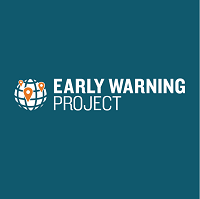
Survey Results: South Sudan Tops Risk List for Mass Killing in 2021
February 22, 2021
For the eighth year in a row, the Early Warning Project ran a comparison survey in December to solicit wisdom-of-the-crowd opinions on countries' relative risks for new mass killing. South Sudan, Somalia, and Yemen ranked highest-risk.
-
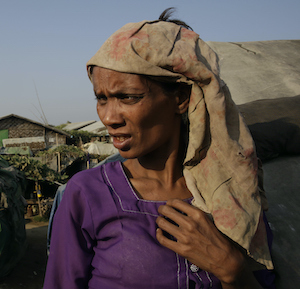
Denying Rights to Citizenship and Participation in Public Affairs: Genocide Risk Factors in Burma
November 20, 2020
This report examines how Burma can uphold its obligations to prevent genocide as called for by the International Court of Justice. It looks at rights to citizenship and participation in public affairs.
-
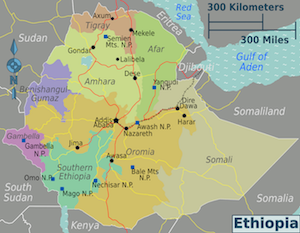
Violence in the Wake of Musician’s Murder Indicates Risk of Atrocity Crimes in Ethiopia
October 16, 2020
Protests against the Ethiopian government erupted in July after Ethiopian singer and activist Hachalu Hundessa was shot and killed in the capital, Addis Ababa, under unclear circumstances. State security forces responded with deadly violence, and the unrest continues to raise regional and ethnic tensions ahead of the delayed 2020 national elections.
-

New Report: Efforts Towards Peace in Côte d’Ivoire’s Presidential Elections
September 10, 2020
With just seven weeks until Cote d'Ivoire's presidential election, supporters of political parties, security forces, and militias have clashed in the streets, resulting in fatality estimates from seven to 26. A new report from a Simon-Skjodt Center fellow analyzes the evolving risks of mass atrocities in the country and the steps that domestic and international actors have taken to help prevent large-scale violence around the upcoming elections
-
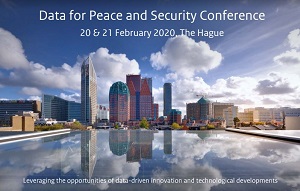
Data for Peace and Security: The Early Warning Project Connects with Innovators Worldwide
May 13, 2020
At a recent workshop, Data for Peace and Security: leveraging the opportunities of data-driven innovation and technological developments, four key themes emerged. Today, policymakers are increasingly embracing data science and new technologies, recognizing the critical role they can play in promoting peace and improving security. As the adoption of these tools accelerates, renewed attention is needed to the challenges of communication, security, and ethics.
-
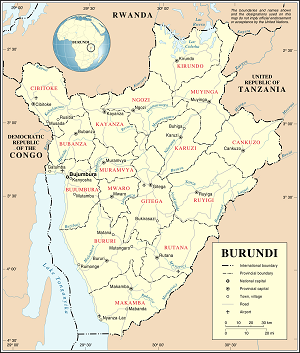
Civilians at Risk in Burundi Ahead of May Elections
May 8, 2020
Burundians are scheduled to go to the polls on May 20th. But an ongoing government-led campaign of repression, a history of mass killings, and complications from the global coronavirus pandemic threaten to exacerbate atrocity risk surrounding the elections.
-

State of the World: Mass Killing in 2019
April 8, 2020
No new mass killing episodes began in 2019, according to the latest review by the Early Warning Project. This good news, however, is tempered by the historically high number of ongoing mass killings: 20 separate episodes as of the end of 2019, perpetrated by 10 states and 10 nonstate groups, in 15 countries.
-

The Private Sector and Atrocity Prevention: Lessons from Côte d’Ivoire
March 31, 2020
The private sector in Côte d'Ivoire has a critical role to play in ensuring a peaceful electoral process through 2020.
-
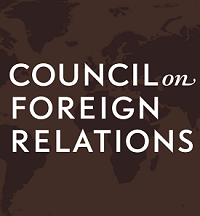
DRC, Afghanistan, and Egypt at Highest Risk for Mass Killing
December 21, 2018
The Democratic Republic of Congo, Afghanistan, and Egypt top the list of countries most likely to experience a new mass killing in 2018 or 2019, according to a new forecast released by the Museum's Early Warning Project. The report’s release coincided with the launch of the project’s new website, including interactive data tools, accessible reports, and data files.

